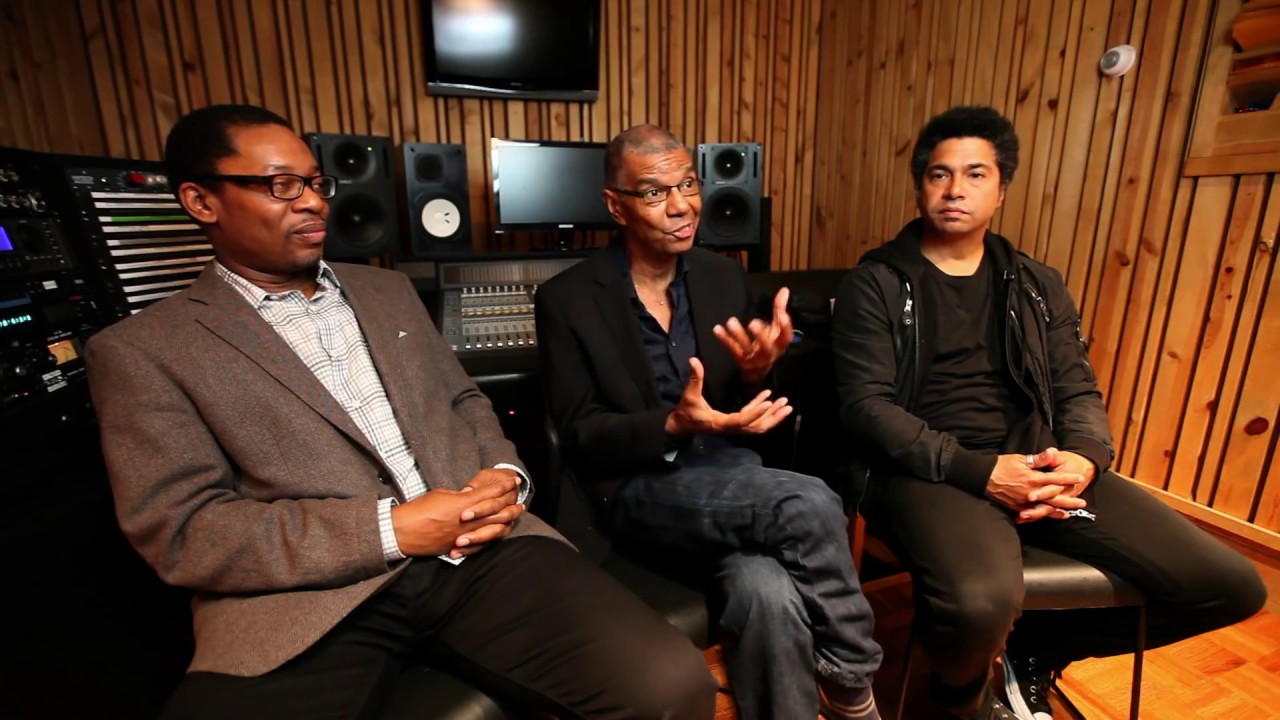This summer has seen some fine releases from Complete Communion favourites as Peter Brötzman and Mary Halvorson, but rather than round up the usual suspects, I thought I’d devote this latest edition to artists we’ve covered less often, if at all. So there’s a hot new batch of tapes from Austin label Astral Spirits, inspired contemporary composition, gorgeous Portuguese free jazz, an inter-generational dream team, and luminous British/Bengali piano music.
First up, some public service announcements.
July 13 marks what would be the 80th birthday of free jazz’s Holy Ghost, Albert Ayler. To tie in with the anniversary, Hatology have reissued his 1964 European radio sessions, which see the classic Spiritual Unity Trio of bassist Gary Peacock and drummer Sunny Murray augmented by the great Don Cherry on cornet. Needless to say, you need this astonishing music in your life.
In further hot transmissions from the Aylerverse (to borrow a phrase from tQ’s John Doran), DIY Space for London and Tome Records celebrate the great saxophonist with a special event on July 13th. ‘Mystic Tenor’ features screenings of Kasper Collins’ beautiful documentary, My Name Is Albert Ayler and Michael Snow’s 1964 film New York Ear And Eye Control, featuring Ayler’s trio, Don Cherry, Roswell Rudd and John Tchicai. There will also a live performance of Ayler-inspired music and sound art from Custodians Of The Real (Adrian Northover, Adam Bohman and Sue Lynch).
Brighton Alternative Jazz festival returns for its second year on September 9-11. Confirmed acts so far include Artifacts Trio (Nicole Mitchell, Tomeka Reid and Mike Reed), Ingrid Laubrock & Tom Rainey, Anna Högberg Attack, Taco Bells and Konstrukt with Alexander Hawkins. Hot diggity! To find out more and help with the festival’s crowdfunding efforts visit their
Communing With Astral Spirits
Austin, Texas’s Astral Spirits has become one of the essential labels of the tape renaissance, issuing live recordings of out-jazz and underground music. The Quietus’s Tristan Bath has covered some of the label’s more noise-rock oriented releases in his excellent Spool’s Out column, but this latest batch is more identifiably jazz and improv related. I use those terms advisedly, for two of these sets are amongst the wildest forays into the unknown I’ve heard all year. In an intriguing collaboration, Turkish free jazzers Konstrukt travel the spaceways with 808 State’s Graham Massey, while veteran British improviser Alan Wilkinson teams up with NYC absurdists Talibam! for a gonzoid session that sounds like a jazz trio fed through Google’s Deep Dream software. Teddy Rankin-Parker and Daniel Pearce’s cello and percussion duets, meanwhile, expand the language of acoustic free improvisation.
Konstrukt feat. Graham Massey & David McLean – Live At Islington Mill
(Astral Spirits)
Longstanding favourites of this column, Konstrukt operate as a platform for collaboration, roping visiting luminaries such as Joe McPhee, Peter Brotzmann and William Parker into their Instanbul sessions, and welcoming local players into their fold while on tour. This Astral Spirits tape, recorded last year at Salford’s Islington Mill, teams them with David McLean of Manchester’s Tombed Vision label and Graham Massey of 808 State.
The blissed-out soprano saxophone of 808 State’s classic ‘Pacific State’, and the skronky post-punk of Biting Tongues always suggested Massey was a bit of a jazzer. Contributing guitar, bass clarinet and fx, Massey’s presence nudges the band towards an expansive sound that reimagines ’70s Miles Davis or Lanquidity-era Sun Ra through acid house and space rock. Side 1 begins with the goat-like wail of Korhan Futaci’s gralla (a Catalan double reed) over sputtering drum machine, with Barlas Tan Ozemek’s fluid electric bass driving it all forward into a dubbed out cosmic jam. After several minutes of free floating saxophone and Rhodes reverie, drummer Berke Can Ozcan works up a Jaki Liebezeit-style groove that launches the band into stratospheric realms of cosmic skronk. After tearing through the earth’s atmosphere we’re left gorgeously adrift in the Milky Way, before a huge rising synth tone heralds a final light speed dash towards Andromeda.
Talibam! And Alan Wilkinson – It Is Dangerous To Lean Out
(Astral Spirits)
As Talibam! Matt Mottel and Kevin Shea make an absurdist racket that traverses the dreaded pit of wackiness through its sheer forcefulness. While not quite as demented as the Donkey Kong cacophony of their 2015 collaboration with damaged CD specialist Yatsunao Tone, It Is Dangerous To Lean Out is still an utterly zonked spool of drool, pitting Alan Wilkinson’s alto and baritone saxophones against lurid synths and a hardcore barrage of free drumming. Mottel’s keyboards spit out glistening neon tone clusters and gobbets of sickly pink noise, while Wilkinson throws gutbucket blues jabber and altissimo squalls back at him. As batshit as this session is, it’s too playful and supple to be a meat-headed noise fest. The final five minutes or so are even quite melodic, no matter how hard Shea tries to drill down to the earth’s core.
Rankin-Parker/Pearce – Odd Hits
(Astral Tapes)
Teddy Rankin-Parker and Daniel Pearce are one half of Broken Trap Ensemble, a Bay Area quartet who mix free improv and new music. As a duo, Rankin-Parker and Pearce get deep into rhythm and texture, creating a duo language that is tactile and constantly moving. ‘Fast Clip’ sees Pearce building a polyrhythmic groove, weaving drum frame clacks around a syncopated pulse while Rankin-Parker slaps his strings and grinds through creaking double stops. ‘Weddell’ is more abstracted, based around partially voiced minimalist bowing patterns and rumbling percussion, while ‘Motorik’ suggests a jam between Arthur Russell and Neu! ‘Low Battery’ stages a conversation between egrets and a knackered elephant, before ‘Results’ takes us into an arctic realm of seals and creaking icebergs. The rigour and focus both players bring to these short investigations is matched by the originality of their voices.
Tyshawn Sorey – The Inner Spectrum of Variables
(Pi Recordings)
Only 35, Tyshawn Sorey is a prodigiously talented drummer and composer, straddling New York’s avant-jazz and contemporary classical scenes with aplomb. Stretching across two CDs The Inner Spectrum of Variables is a monumental piece of work, recorded in a single 15 hour session. Largely composed, this extended work for double trio is opened up to improvisation through Sorey’s Butch Morris-inspired conduction techniques.
‘Movement I’ is a short piano solo for Corey Smythe, setting the crisp, airy tone for what follows. The first passage of ‘Movement II’ modulates from low to high end, as violin and viola rise out of a double bass and cello abyss. Subsequent sections take in breezy Bach-like contrapuntalism and reflective piano features. The jazz connection is more present on ‘Movement III’, where Sorey leads from behind the drum kit. A jagged vamp for piano and drums sets up a conversation for see-sawing strings, which stops abruptly to clear the air for a mournful cello feature. A lengthy improvised middle section is filled with incident, from droning bass strings to violin and viola catfights. Such excitement makes the following meditation for sustained textures and resonant tones all the more effective. There’s even room for a lyrical coda of straight-ahead piano jazz balladry, before the Venusian abstractions of ‘Reverie’ and the diverse topographies of the final three movements. The Ethio-jazz section of ‘Movement IV’ is particularly inspired, successfully transposing modal melodies to violin and viola, while Sorey deftly expands on a syncopated groove.
It will take some time to unpack this vast album’s intricacies. The Inner Spectrum Of Variables is a hugely impressive and often moving work, establishing Sorey as a worthy heir to creative composers like Anthony Braxton and Henry Threadgill.
Fail Better! – Owt
(No Business)
Regular readers of this column will know that Vilnius’s No Business is a label whose praises should be sung from on high. Their summer release schedule features some top-notch international collaborations, alongside a trio of archival and contemporary releases celebrating the great clarinettist Peter Kuhn. Check them out forthwith. The label has been hip to Portugal’s vibrant avant-jazz scene for some time, issuing great albums by Rodrigo Amado, Hugo Antunes and others. Casal de Cambras’s Fail Better! are new to me, however, but I shall be checking out its members’ other projects on the strength of this beautiful set. Recorded live in 2014, Owt is the quintet’s second release, following 2014’s Zero Sum on JACC Records.
Opening track ‘Former Times’ sounds a little like an abstracted take on the passage on ‘In a Silent Way’ where Miles Davis’s group briefly breaks into an alert, street-smart groove. But instead of metered grooves and thematic statements, Fail Better! explore a desert landscape of telegraph wire guitar twangs and muted trumpet susurrations. The quiet storm that has been brewing through that opening number builds in intensity on ‘Sidereal’ with João Pais Filipe’s insistent floor tom rhythm and guitarist Marcelo dos Reis’s growling E-string providing an elemental backdrop from which trumpeter Luís Vicent and alto saxophonist João Guimarães tease tentative melodic forms and snatches of extended technique. Side 2’s ‘Circular Measure’ offers a more forceful development of ‘Sidereal’s’ rumble and drone, with Reis cutting through the chattering horns with lunar guitar leads. ‘Stellar’ offers some suitably nocturnal atmospherics, with resonant gongs and hypnotic bowed bass figures from José Miguel Pereira.
Jack De Johnette, Ravi Coltrane, Matthew Garrison – In Movement
(ECM)
Jack De Johnette’s Made In Chicago was one of Complete Communion’s albums of 2015, so his presence here might seem like cheating. However, I’ve not covered his latest collaborators here before, so haud your wheesht, as your Scottish granny would say. Ravi Coltrane is, of course, the son of John and Alice Coltrane, while Matthew Garrison is the son of the great Coltrane quartet bassist Jimmy Garrison. On In Movement, the trio meet as equals, reworking classic themes and originating several new compositions. Their take on John Coltrane’s immortal Civil Rights Era elegy ‘Alabama’ is deeply moving, with Ravi Coltrane’s saxophone full of dignity, sadness and quiet anger. As the piece gathers momentum, Garrison’s distorted electric bass swells behind the saxophonist, while De Johnette’s drums roil. For all the nods to the past – creative homages to Miles Davis, Rashied Ali and Earth, Wind & Fire – this is firmly future-focussed music, with Garrison’s inventive bass and electronics bringing the shock of the new.
Zoe Rahman – Dreamland
(Manushi Records)
A regular accomplice of Courtney Pine and a member of Jerry Dammers’ Specials AKA Arkestra, Zoe Rahman is one of mainstream British jazz’s most impressive pianists, with a powerfully lyrical style that draws on her Bengali roots and classical background. Dreamland is her first solo piano recording, featuring her own compositions alongside a few well chosen standards. While ‘These Foolish Things’ is a tad over-familiar, Rahman’s takes on Duke Ellington’s deeply gorgeous ‘A Single Petal Of A Rose’ and Abdullah Ibrahim’s ‘Sunset In Blue’ brim with confidence. Rahman’s own compositions, such as the playful ‘Red Squirrel’ and ‘J’Berg’, benefit from her vigorous approach, where her left hand dances over gutsy right hand vamps and riffs. Rather than overwhelm ballads such as ‘For Anais’, Rahman’s physical approach brings a soulful intensity. The album’s highlight is the beautiful rendering of Rabindranath Tagore’s ‘Kar Miono Chao Birohi’, where some of her most delicate and inventive playing goes into the extended raga that blossoms from the main theme.




